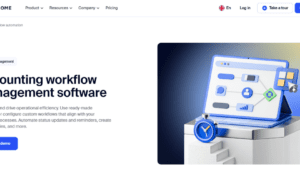Wondering how much does it cost to make an app in the uk? Every App development cost is different but by the time you finish this article you will know everything you need to.
In today’s digital age, mobile apps have become an indispensable part of both consumer and business technology. With over 5 million apps available across iOS and Android devices, apps have transformed how we communicate, shop, work, and access entertainment.
However, developing a high-quality mobile app requires significant time, skill, and financial investment. While a simple app may cost only £10,000 to develop in the UK, more complex apps with advanced features can cost well over £100,000.
In this comprehensive guide, we’ll cover everything you need to know about the costs of building a mobile app in 2023 in the UK, including:
- Evaluating if you actually need an app
- Comparing app development costs and finding a reliable app development company
- Factoring in “hidden” app development costs beyond the development fees
- Choosing between native app development and hybrid approaches
- Deciding between building for different operating systems like iOS, Android, or both
- Estimating app development timelines
- Monetizing your app and recouping costs through in-app purchases
- Ongoing maintenance and support costs after launch
Read on for a detailed overview of what goes into building, launching, and maintaining a successful mobile app in the UK market today.
Do You Actually Need a Mobile App?
With the popularity of smartphones, it can be tempting to assume your business needs an app developed by an app development company in the UK. But developing an app solely for the sake of having one is a mistake. Before investing in mobile app development, you need to evaluate if an app aligns with your business goals and would provide value to users.
Here are some key questions to ask:
- Does your business model truly require advanced mobile functionality, or would a mobile-optimized website suffice?
- Who is your target audience, and would they realistically use an app to engage with your business?
- What unique value would the app provide over your existing digital presence?
- Would the app’s features and functionality justify the ongoing cost of maintenance and support after launch?
A mobile app needs to solve a real problem or provide a seamless experience that a website cannot replicate. Simply porting over your current website content into an app without considering the user experience is unlikely to be successful.
Properly evaluating if an app makes strategic sense will save you from unnecessary costs and wasted app development efforts down the road. The best apps emerge from a clear vision of addressing target user needs and advancing a business’s core goals.
Comparing Mobile App Development Costs in the UK
If building an app is aligned with your business strategy, the next step is to estimate development costs. Prices of mobile app development services can vary widely depending on factors like platform (iOS vs. Android), app type and complexity, development method (native vs. hybrid), team location, and additional features like back-end infrastructure and integrations.
Here is an overview of how some of the main factors affect the cost of mobile app development in the UK:
- App complexity – Simple apps with basic functionality can be developed for as little as £10,000 in the UK, while complex apps with advanced features can cost well over £100,000. Unique functionality like 3D gaming capability, AI integration, and IoT connectivity will increase complexity.
- Development team location – Average costs range from £70 – £150/hour for UK-based developers, compared to £20 – £50/hour for Eastern European and Asian developers. Nearshore locations balance quality and costs.
- Native vs. hybrid – Native apps developed individually for iOS and Android cost more but allow full access to native device capabilities. Hybrid apps have a unified codebase that reduces costs but may have some performance limitations.
- Number of operating systems – Supporting both major mobile platforms essentially doubles the costs compared to building for just one OS.
- Back-end costs – Integrating with external APIs and building server infrastructure for things like user accounts and databases adds to the total app development costs.
- Design – Good visual design and UX is crucial for adoption and typically accounts for 10-20% of the total app development budget.
Other factors like required marketing, security features, maintenance/support, and Apple’s app store fees add to the total long-term costs of owning and operating an app.
When researching UK app development companies, get detailed proposals that break down all associated costs, not just the base development quote. Asking questions like whether source code is included and if future app store fees are covered will avoid unexpected surprises.
Quality should be the top priority over a cheap estimate that seems too good to be true. Review portfolios and look for reviews from past clients to assess technical expertise and communication skills. An experienced app development team with clear project planning and management will likely justify the higher cost in the long run.
Accounting for “Hidden” App Development Costs in the UK
While the software development costs make up the bulk of your initial mobile app budget, building and launching an app involves various additional services that quickly add up. Before developing your app in the UK, factor these hidden costs into your overall budget:
- Design – As mentioned above, good visual design and user experience is crucial for adoption but often underestimated in budgets. Professional designs fees can range from £5,000 to £15,000+ in the UK.
- Content Creation – The text, graphics, videos, and other content assets for your app need to be created or licensed, which takes both time and money.
- Quality Assurance – Extensive testing across devices is required to catch bugs and optimize performance before launch, which may involve paid QA services.
- App Store Submission – Apple charges £99 per year for access to its App Store Connect platform to submit apps plus 30% in commissions. Google Play has a one-time £25 fee but also takes 30% in commissions.
- Marketing – From social media advertising to influencer partnerships, marketing is key to getting an app discovered. Budget at least 20% of total app development costs in the UK for marketing efforts.
- Ongoing Support – Users will need access to support channels like email, social media, and chat which require dedicated staff time after launch.
- Legal Services – Lawyers are often needed to create privacy policies, terms of service and handle contracts with external vendors and partners.
While not always obvious at first glance, services beyond just software development play a huge role in launching a successful app. Building out a team in the UK to handle critical items like marketing, legal services, content creation and support will require significant budget. The more informed you are about the complete picture, the better you can plan and manage costs.
Comparing Native vs. Hybrid App Development in the UK
One of the biggest cost factors in mobile app development is whether to build native or hybrid apps. Here is an overview of each approach:
Native App Development
A native app is developed specifically for the platform it will be used on – either iOS or Android. Building a truly native experience allows full access to the device’s software and hardware capabilities. However, it requires coding in platform-specific languages like Swift or Java.
Native app pros:
- Maximize performance
- Take full advantage of device capabilities
- Access platform-exclusive APIs and SDKs
- High responsiveness from direct OS integration
Native app cons:
- Requires separate development for iOS and Android
- Increased costs due to duplicated efforts
- Longer app development process
Hybrid App Development
Hybrid apps use cross-platform development tools like React Native and Flutter to create a unified codebase that works across platforms. Web development skills like HTML, CSS, and JavaScript are leveraged while still allowing access to some native APIs and SDKs.
Hybrid app pros:
- Write once, deploy to multiple operating systems
- Easier to develop with web languages
- Faster app development process
- Lower cost with shared codebase
Hybrid app cons:
- Performance limitations
- Limited access to all native device capabilities
- Can experience UI inconsistencies
Weighing the pros and cons of native versus hybrid app development will impact your timeline and budget significantly when building an app in the UK. While native delivers the best end-user experience, many startups and SMBs favor hybrid for its cross-platform efficiencies and lower costs while still delivering modern app experiences.
Picking Your Deployment Platforms: iOS vs. Android vs. Both
Generally, businesses want to reach the largest possible audience which means building for both major mobile platforms – iOS and Android. However, limited budgets especially for early-stage companies often require picking just one platform to target first when developing an app in the UK.
Here are key user statistics to consider for iOS versus Android:
iOS
- Approximately 15-20% global market share
- Customers spend 2x more than Android users
- USA has highest iOS adoption nearing 60% market share
- Demographic skews higher income
Android
- Approximately 80-85% global market share
- Dominant platform internationally especially emerging markets
- Lower barriers to entry with budget devices
- Demographic ranges wider income range
With the much larger market share globally, Android reaches far more potential users. However, iOS customers tend to be more lucrative with higher disposable income and spend. Ultimately, your existing customer base and growth priorities should dictate the ideal platform mix.
A prudent strategy is to first develop for just one OS and validate the product-market fit before expanding app development to other platforms. Starting with your most accessible or lucrative target segment makes the most strategic sense. For example, a business with primarily UK-based customers would likely prioritize iOS initially.
No matter your initial platform focus when building an app in the UK, keep future expansion in mind to allow porting your codebase and experience to other platforms in future phases.
Estimating Your App Development Timeline in the UK
With so many variables affecting mobile app development, it can be challenging to estimate accurate timelines. However, some general guidelines for planning your schedule when building an app in the UK include:
- Simple Apps – 4-6 months
- Medium Complexity – 6-12 months
- High Complexity – 12-18+ months
The more functionality and integrations needed, the longer it will reasonably take. When requesting estimates from UK app developers, look for proposals that outline the key phases with timeframes for each:
- Planning – Finalizing features, UX design, technical specifications
- UI/UX Design – High-fidelity app visual design
- Development – Coding application logic and integrating services
- Testing – Includes alpha, beta, and prerelease testing
- Launch – Submission to app stores for approval
- Post-launch Support – Ongoing updates and fixes
Building padding into your timeline upfront is wise as unforeseen challenges often arise during the app development process. Be realistic about how quickly features can be delivered to avoid quality issues from rushed coding. Prioritizing the app experience over arbitrary deadlines is key – a delayed quality product is better than on-time but bug-ridden.
Monetizing Your App to Recoup Costs
While some enterprise apps focus solely on employee workflows or customer service, most consumer-facing apps will need a monetization strategy to generate ROI on development costs. Here are common app monetization models:
- Paid Apps – Charge an upfront download fee via app stores
- In-app Purchases (IAPs) – Sell premium digital content or subscriptions
- Advertising – Display banner/video ads and get paid per impression
- Sponsorships – Get paid by brands to promote their products
- Referral Marketing – Reward users for sharing the app with friends
- Physical Goods – Sell real-world products or services through the app
Understanding how users will ultimately pay for your app, whether through one-time purchases or ongoing subscriptions, is key to funding future app development efforts.
Be aware that Apple and Google take approximately 30% in commissions from apps sold through their UK app stores. To maximize revenue, you will need to factor in those platform fees when structuring pricing.
Ongoing App Maintenance and Support Costs in the UK
App development does not stop at launch. To remain functional, secure, and appealing to users over time requires ongoing maintenance and feature development. Here are some common long-term costs:
- Technical Support – Helping UK users troubleshoot issues requires staffing support channels.
- Bug Fixes – Despite extensive testing, bugs always emerge requiring fixes.
- Performance Optimization – You must continue improving speed and reducing crashes.
- Feature Enhancements – Users demand new features to stay engaged over time.
- Platform Updates – Apple and Google regularly release new OS updates you must adapt to.
- Regulatory Compliance – Keeping data privacy protections and security protocols up to date is mandatory.
A typical guideline is to budget around 15-20% of original app development costs annually for ongoing maintenance and support of an app built in the UK. Apps require continuous improvement and vigilance to thrive in the competitive mobile software market.
Neglecting the long-term costs and commitment required after launch is a common mistake that leads to stagnant, buggy apps that frustrate users. Building an infrastructure and UK-based team to maintain your app for the long-haul is essential.
Key Takeaways on Mobile App Development Costs in the UK
- Carefully validate if an app solves a real business need before investing in UK app development.
- Good design, development, QA, marketing and ongoing support are all crucial investments.
- Hybrid approaches balance capabilities and costs compared to strict native app development.
- Target one major platform initially before expanding to reach different operating systems.
- Maintenance costs continue well after launch to keep UK users happy and engaged.
By understanding the many variables that influence costs, weighing tradeoffs and building long-term support into budgets, businesses can launch successful apps built on sound financial plans. While not cheap, a well-executed mobile app delivers invaluable branding, engagement with customers, and competitive differentiation.



































